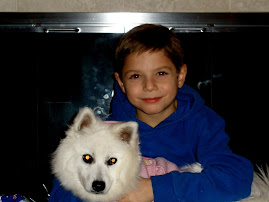A dog is considered to be a senior citizen at age 7. And just like senior humans, senior dogs can start having mental "slips" as they get older. This is known as Doggie Dementia. Here are some signs to watch for:
- Changes in sleeping-waking patterns
- Aimless wandering, pacing or circling
- Uncharacteristic house soiling
- Changes in relationships with family
- Whining or inappropriate barking
- Getting lost in familiar surroundings
- Unresponsiveness to known commands
- Unusual restlessness
- Uncharacteristic anxiety (separation anxiety, fearfulness)
Evidence of this cognitive dysfunction syndrome is made by process of elimination by your veterinarian, as it is impossible to test directly for this condition except by autopsy of the brain. Your vet may first test for blindness, urinary tract infection, or kidney disease in this elimination process.
If your vet does determine that your dog suffers from Doggie Dementia, he may prescribe Anipryl, which can help reduce the symptoms. However, there are some things you can do at home to reduce the symptoms, as well. Dogs who suffer from dementia do best when you follow a strict routine and provide regular age-appropriate exercise. Antioxidants, nutrient-rich food, and supplements & nutraceuticals can also benefit seniors. But most importantly, keep your dog involved in life.












